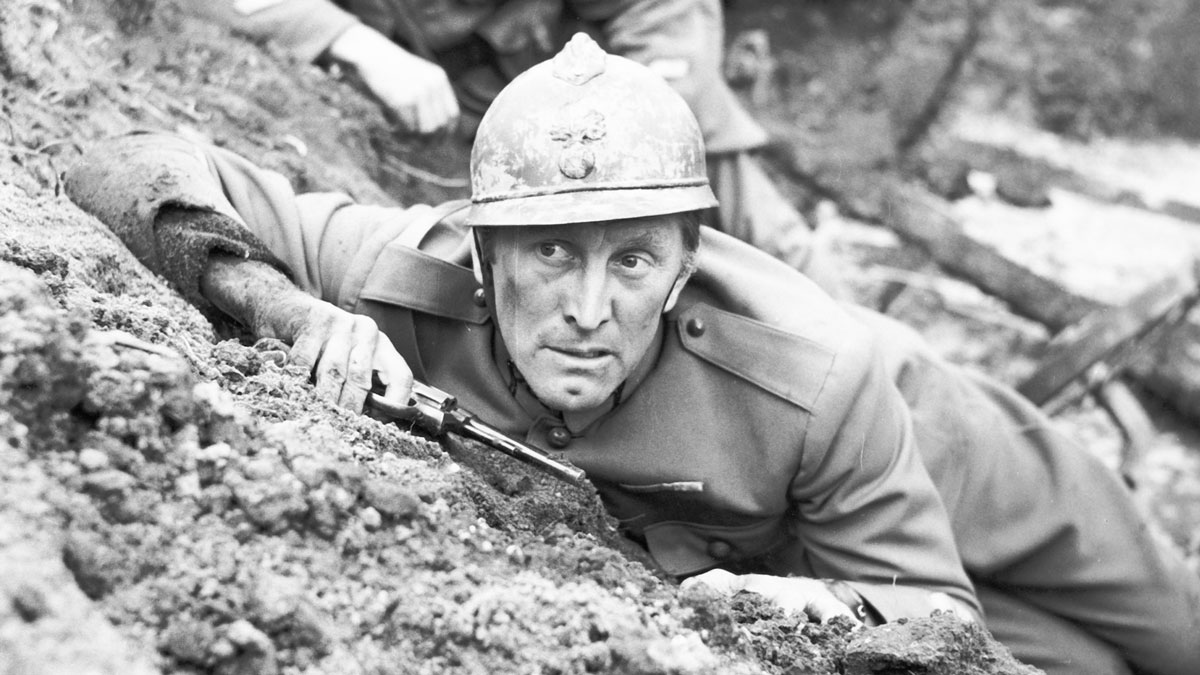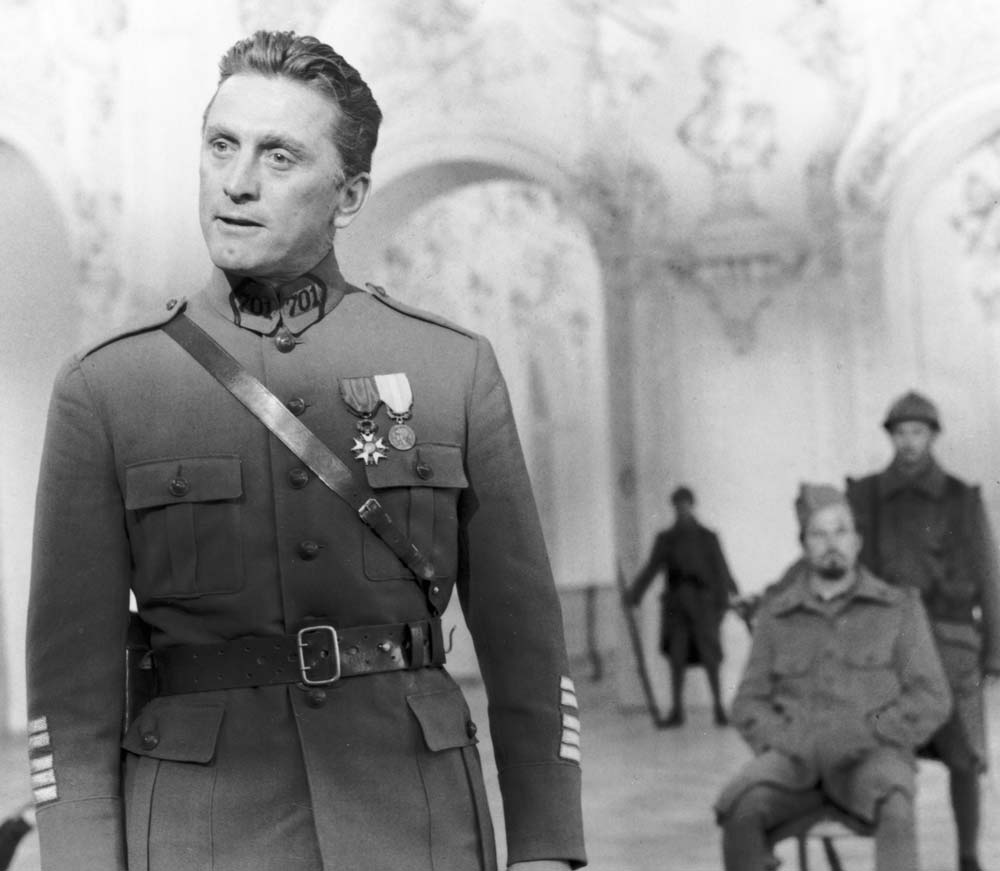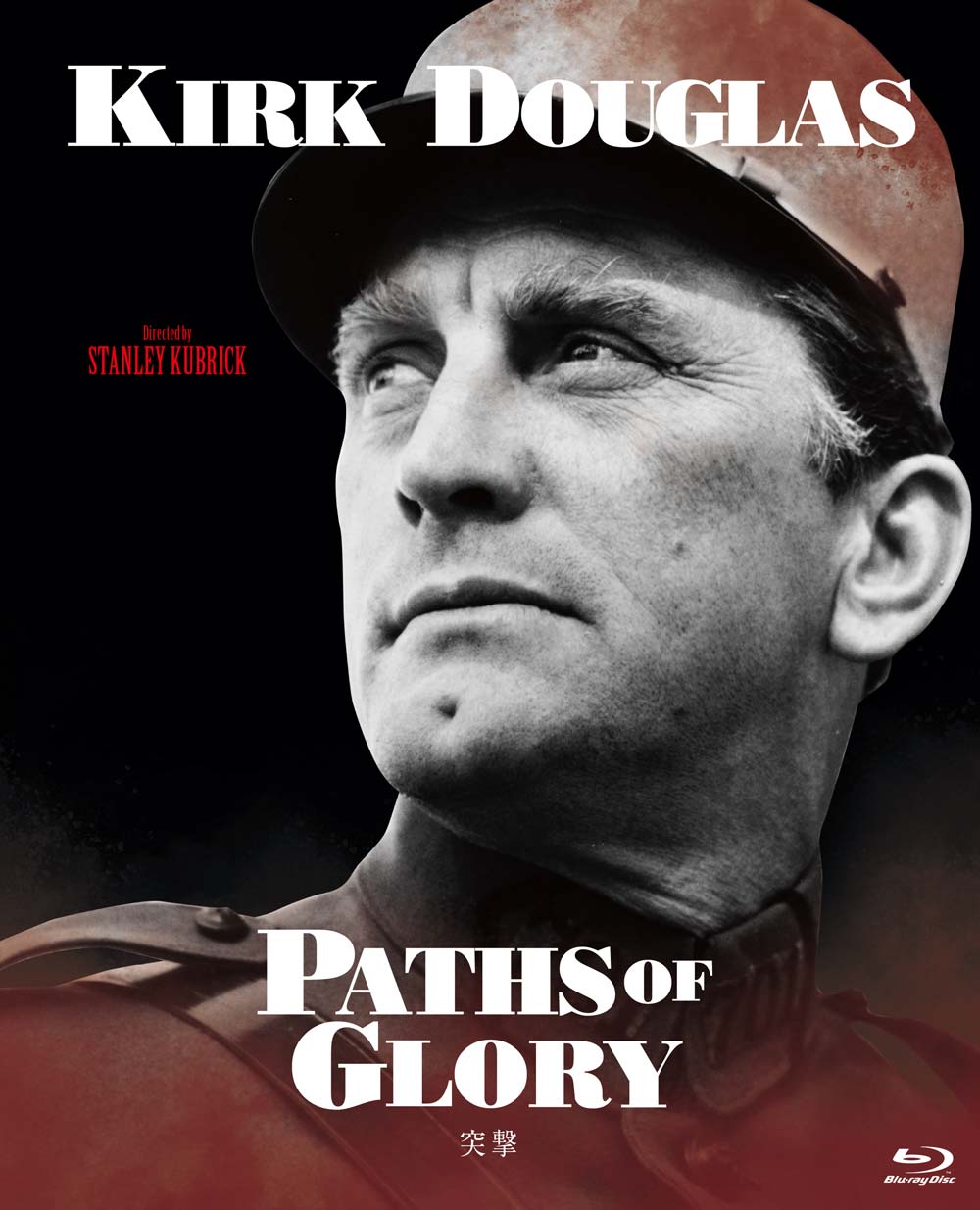
© 1957 Harris Kubrick Pictures Corp. All Rights Reserved. © 2019 Metro-Goldwyn-Mayer Studios Inc. All Rights Reserved.
"Paths of Glory" Stanley Kubrick's emotional anti-war film
2021.02.09
Emotional touch that is not typical of Kubrick
``Paths of Glory'' is a typical two-part work. The first half depicts ``fierce trench warfare on the Western Front'' in a spectacular manner, but the second half takes a turn and depicts ``a court-martial that exposes the absurdity of war'' in a quiet tone.
Looking back, `` Full Metal Jacket '' (1987), which is based on the Vietnam War, has two parts: the first half of the story, in which the main character, who has volunteered to join the U.S. Marine Corps, undergoes rigorous training at a camp, and the second half, in which he is dispatched to Vietnam and conducts military operations. Consists of two parts. Kubrick's love for two-part compositions is most evident in his works, such as ` `2001: A Space Odyssey '' (68), before and after human evolution, and `` A Clockwork Orange '' (71), before and after brainwashing. You could say this is the first example.
Structurally, it has the origins of Kubrick's films, but the touch is clearly different. ``Paths of Glory'' does not have a sense of black humor that looks down on humanity from the perspective of God and ridicules it. There is no cold nihilism. It's a surprisingly open and straightforward piece of work. The scene in which Major Dax, played by Kirk Douglas, declares at the court-martial, ``The charges against them are a deception against humanity,'' is so emotional that it's hard to believe it's a Kubrick film.

“Paths of Glory” © 1957 Harris Kubrick Pictures Corp. All Rights Reserved. © 2019 Metro-Goldwyn-Mayer Studios Inc. All Rights Reserved.
The last scene is also a straight forward emotional production. In a bar where French troops hang out, a German girl from the enemy country sings a song with tears in her eyes (played by Christiane Harlan, who later became Mrs. Kubrick). The soldiers are moved by the song and sing along. What concludes the absurd story of French people executing French people is the mysterious solidarity between the French and the German girl.
In fact, ``Paths of Glory'' was not shown in France for a long time. This is because it portrayed the French army in an extremely negative and foolish manner. In order to avoid damaging relations with France, screening of the film was even banned in Germany for several years after its release. However, this film definitely left its mark on film history and had a great influence on future filmmakers. For example, Terry Gilliam famously said, ``It was a life-changing experience.'' Inspired by the trench scene in Paths of Glory, I shot a long tracking shot for Brazil (1985). Sam Mendes also said that he reconsidered this film when making `` 1917 '' (2019).
Finally, let me close this article with Kirk Douglas' famous critique of Kubrick.
"[Kubrick] is a talented piece of shit!"
Text: Rui Takeshima
A pop culture writer who wants to be kicked by Hit Girl. Host of the web magazine "POP MASTER".

"Paths of Glory"
Publisher: IVC
Price: Blu-ray ¥4,800+tax
© 1957 Harris Kubrick Pictures Corp. All Rights Reserved.
© 2019 Metro-Goldwyn-Mayer Studios Inc. All Rights Reserved.

